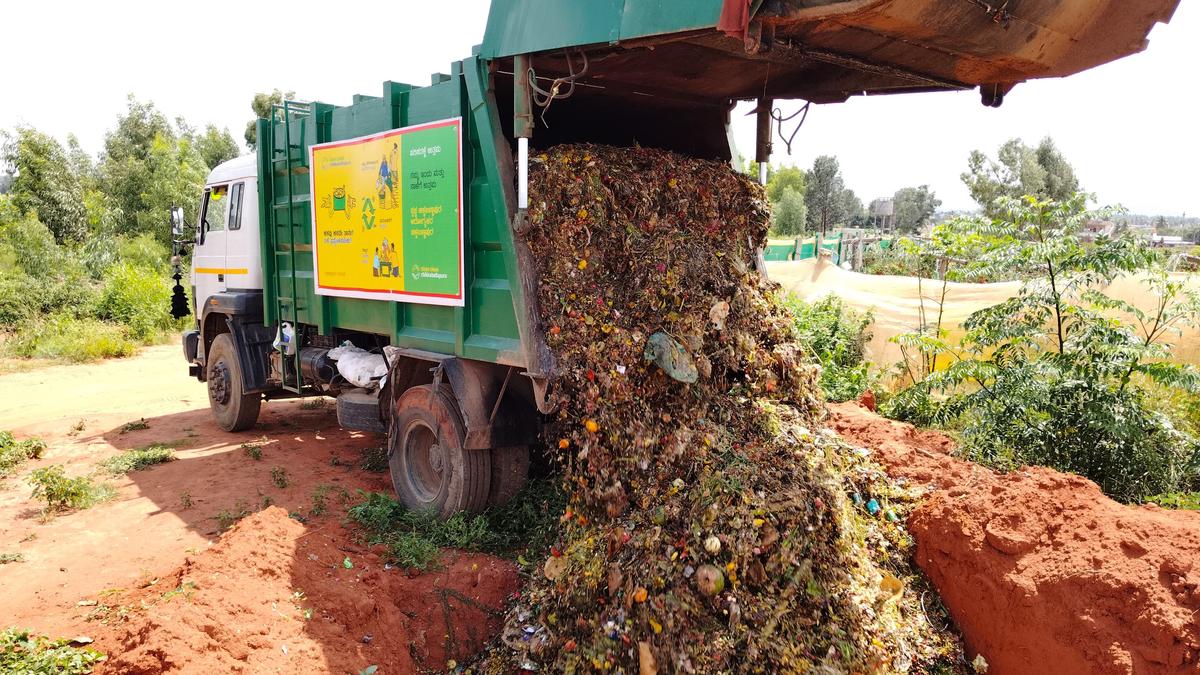
How a city-farmer partnership is revolutionising solid waste management in Chickballapur Premium
The Hindu
G.V. Suresh, a 27-year-old farmer who grows roses and potatoes in his farmland at Gundlagurki, in Chickballapur district abutting Bengaluru, has now switched to organic compost. This has hugely helped him cut down costs, while making farming more sustainable.
G.V. Suresh, a 27-year-old farmer who grows roses and potatoes in his farmland at Gundlagurki, in Chickballapur district abutting Bengaluru, has now switched to organic compost. This has hugely helped him cut down costs, while making farming more sustainable.
He is one of the many farmers who are part of the City-Farmer Partnership for Solid Waste Management project launched in Chickballapur, with the support of Chickballapur City Municipal Council (CCMC) and Godrej Properties Limited (GPL), by the Indian Institute of Human Settlements (IIHS), Bengaluru.
This initiative transforms organic wet waste into compost for farmers, assists self-help groups (SHGs) in managing textile waste, and provides guidance for transporting and disposing of non-recyclable plastic. The key goals include ensuring farmers have access to organic compost, encouraging sustainable agricultural practices, and offering education and training on sustainable waste management.
Under this project, wet waste is collected from the municipal council, transferred to compost pits at farmlands, turned into compost, and given to farmers for free. This project, planned for three years, is expected to benefit more than 200 farmers and process roughly 33,000 tonnes of solid waste. Started in March this year, so far, the project identified 251 farmers in 21 villages around Chickballapur, out of which 121 farmers were involved in wet waste segregation, and a total of 109 farmers received compost. A total of 1,008 tonnes of waste was supplied to farmers out of which 759 tonnes were processed to compost.
The project gains significance in a context where SWM is often perceived as a challenge confined to larger cities, but is increasingly posing problems in towns and rural areas too. Despite having smaller populations, these regions often lack the necessary infrastructure, resources, and regulatory frameworks to handle waste effectively. Poor waste disposal practices, open dumping, and limited recycling options are common, leading to significant environmental and public health risks.
The Chickballapur project of City-Farmer Partnership for Solid Waste Management of IIHS has won praise for addressing this challenge by promoting scientific approaches to handling different types of solid waste.
Speaking to The Hindu, Pushkara S.V., a senior manager at IIHS and one of the initiators of the project, said that it is important to implicate projects like these across small cities in the country.













